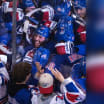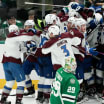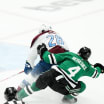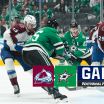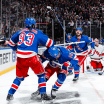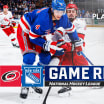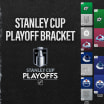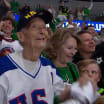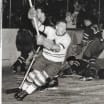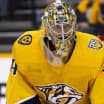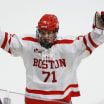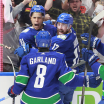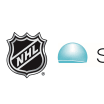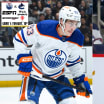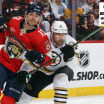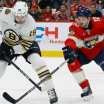Legendary hockey reporter and analyst Stan Fischler writes a weekly scrapbook for NHL.com. Fischler, known as "The Hockey Maven," will share his humor and insight with readers each Wednesday.
This week features a 1968 interview with Hockey Hall of Famer Babe Pratt, one of the NHL's best defensemen of the late 1930s and 1940s. Pratt, then 52, talked with Stan in his office at a New Westminster, British Columbia, lumber company two years before returning to hockey as assistant to the vice president of the expansion Vancouver Canucks.
Here are highlights of that conversation:
Voices from the Past: Babe Pratt
Free-spirited defenseman discusses Hall of Fame career in 1968 interview
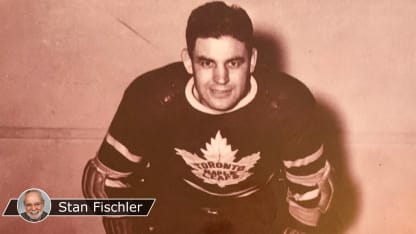
By
Stan Fischler
Special to NHL.com
Did you grow up in a hockey atmosphere?
Absolutely. Winnipeg is a wonderful hockey town; and was when I was a kid. In our town we had great teams going back to the 19th century with clubs from our city winning the Allan Cup (senior hockey championship in Canada) and the Memorial Cup. We had a lot of hockey heroes. Mine was Frank Frederickson, who had come from Iceland and lived near us. I watched Frank play and wanted to be just like him. We had something like 64 rinks for kids 12 years and younger.
When did you think about making hockey your career?
I was good enough to move up the ladder to junior hockey in Kenora, Ontario, not that far from Winnipeg. I had a fine coach, Sandy Sanderson, who had great compassion for young players], and he developed my game to a point where the New York Rangers sent a scout to see if I was for real. This particular scout was Al Ritchie, who worked for the Rangers boss, Lester Patrick. After investigating me, Al told many people that I was the greatest prospect he ever scouted. Al and Lester invited me to Rangers training camp in the fall of 1934.
**What was that camp like for a raw rookie like you?**
Competition was really keen. Lester had invited 23 amateurs, and 16 of them made it to the NHL. Guys who made it to the Rangers included a pair of brothers; forwards
[Neil Colville
and
Mac Colville
; defenseman
Muzz Patrick
and forward
Lynn Patrick
. Other good ones were
Alex Shibicky
,
Phil Watson
,
Don Metz
and
Mel Hill
-- all forwards -- as well as defenseman
Joe Cooper
and goalie
Bert Gardiner
.
How did you compare to them?
Lester Patrick, who made all the decisions for the Rangers, wanted me to turn pro. But I still had two years of junior hockey left and was ready to go back to amateurs. But when two of Patrick's regular defensemen,
Ching Johnson
and
Earl Seibert
, got hurt Lester asked me to stay and work out for 10 days. After practicing with big stars like the Cook brothers,
Bill
and
Bun
, as well as
Frank Boucher
, I really felt I belonged with the big club. Still, I eventually went back to juniors; which was the right thing to do. Our team finished first and I led the league in scoring.
When did you make it to the NHL?
After I won the scoring title in juniors, Lester brought me back to the next Rangers camp. He liked what he saw but said I needed a bit of work in the minors, so I went down to Philadelphia for two months. No harm in that since I was playing alongside the Colvilles, Shibicky and Watson. We all got better in Philly and made it up to the big club. We were tickled because we were a part of the youth movement Patrick had started in the late 1930s.
How well did the youth movement work?
The best. Lester also had promoted guys like his sons, Lynn Patrick and Muzz Patrick, along with
Bryan Hextall
,
Ott Heller
and
Art Coulter
. By, the 1938-39 season we reached the playoffs before losing in Game 7 to the Boston Bruins. Once the next season began, we had a real powerhouse -- and when it was over, we had beaten Conn Smythe's Toronto Maple Leafs for the Stanley Cup. Smythe had said the 1940 Rangers was the greatest hockey team he'd ever seen. When we came to Toronto for a game, Smythe would advertise us as "The Broadway Blues, Hockey's Classiest Team."
What made your Rangers so good?
Balance. Our first line scored 38 goals; the second 37 and the third line, 36 over the season. Plus, we had three great centers --
Clint Smith
, Watson and Neil Colville. -- as well as so many good wingmen that we were able to put pressure on the other teams even when we were a man short. Our power play was so strong that in one game Toronto took a penalty and we kept the puck in their zone for the entire two minutes -- and scored two goals *Editor's note: Players who were assessed minor penalties served the full two minutes until 1956-57]*. Our goaltender,
[Davey Kerr
, was one of the best; so was our coach, Frank Boucher.
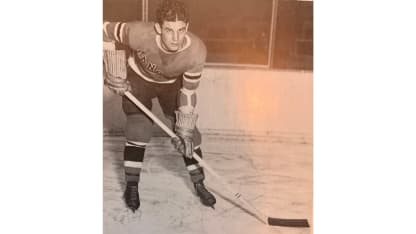
What was your relationship with Lester Patrick like?
For the most part it was good, until near the end. Lester liked me, and I loved playing in New York. It was a great hockey town and still is. Lester made sure we appreciated the city and would tell us about the great actors and actresses. But after a while Lester got disturbed with me; maybe because I always kidded him about his frugality. One of my favorite lines was, "Patrick isn't tight with money, he's adjacent to it!" Eventually Lester had a chance to get two players for me, so he did me a favor and sent me to Toronto in a 2-for-1 deal. With the Leafs I won another Cup and the Hart Trophy.
What was it like joining the Maple Leafs?
I went from one character to another -- Rangers boss Lester Patrick to Conn Smythe, who ran the Leafs with an iron fist. As the Leafs general] manager, Conn was the greatest exhorter hockey has ever known. And he had the greatest coach in Hap Day. What made things unusual was that I was the only player in hockey to room with his coach. Some people thought it was because I'd be under the coach's thumb, but I didn't feel that way. I always thought it was because Hap was a lonely man who needed my company. Whatever the case, I had some great times with Hap and the Maple Leafs.
**How good were you in Toronto?**
Good enough to win the Hart Trophy in 1943-44, when I got 57 points in 50 games -- playing defense. That record lasted 20 years before
[Pierre Pilote
of Chicago got 59 points in 70 games. But my greatest thrill was beating Detroit for the Stanley Cup in 1945. The series went a full seven games and in the last game we were tied in the third period when we got a power play. Our center,
Nick Metz
, sent me a pass When I got the puck I skated in from the point and made a double-pass with Nick and got it back on my stick. I slid a long one past
Harry Lumley
in the Detroit net, and it turned out to be the Cup-winning goal.
How did the second Cup differ from the first?
We had more stars when I was with the Rangers, but we also had some good players on that Leafs team. Our goalie,
Frank McCool
, was rookie of the year and guys such as
Teeder Kennedy
,
Gus Bodnar
,
Elwin Morris
and Hill were good players. Still, I felt that if any one person could have been given the Cup to keep for himself that year, Hap Day should have gotten it for the way he handled our club in '44-45. Hap was the man who made it all work.
What do you remember about NHL greats?
Bruins center
Milt Schmidt
had the most drive. Milt also was a great puck-carrier, as was Syl Apps of Toronto and Neil Colville of the Rangers. No question, the greatest goal-scorer was Montreal's
Maurice Richard
, but "Rocket" wasn't the greatest player. Of the guys I've seen, the greatest was
Jean Beliveau
of the Canadiens. He was a polished performer who could do everything -- stickhandle, shoot, the works! As for the little guys, I liked
Doug Bentley
with the Black Hawks and Boston's nifty center
Bill Cowley
. Those two could really make plays. On defense, I'd go with
Doug Harvey
and
Jack Stewart
. "Black Jack" never was the puck-carrier that Harvey was, just a real, sound, fine defenseman.
You've been revered for your humor; what funny scenes can you remember?
When I was with the Rangers, we were beating Detroit 6-1 just after Red Wings general manager Jack Adams had gotten his citizenship papers. Suddenly a fan yelled out, "Hey, Adams, it's a good thing you got citizenship; now you can get home relief!" Another time we were leading the [New York] Americans by about six goals when a voice from the balcony yells down to me, "Hey, Walter, why don't you turn the net around; nobody's looking!"
